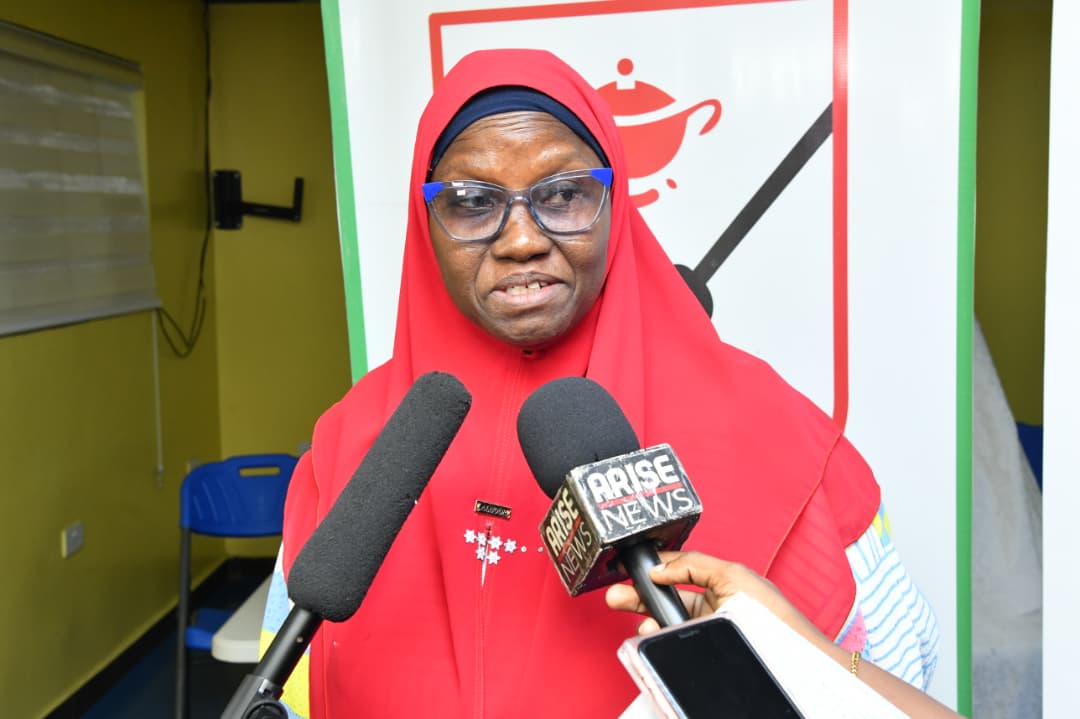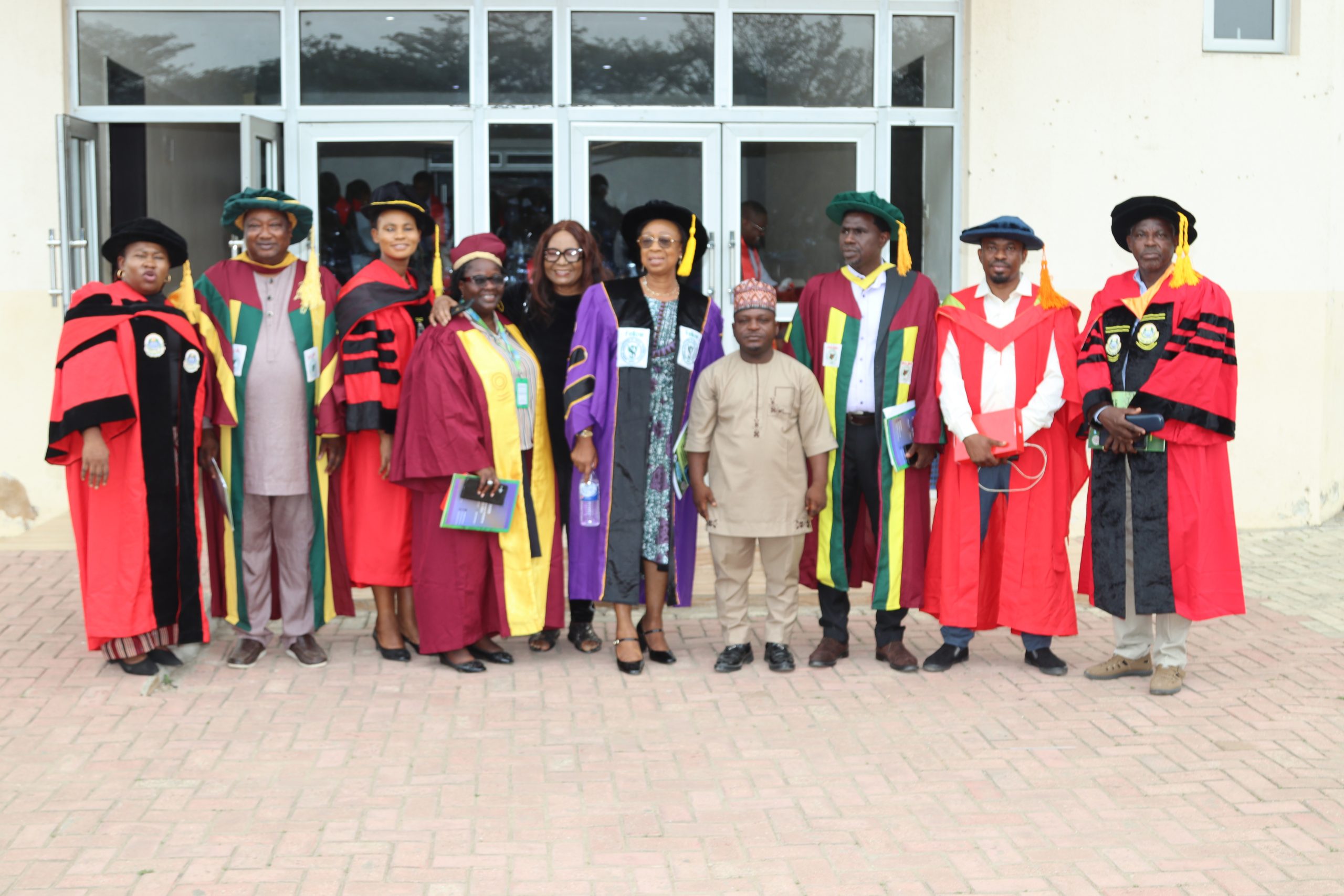Professor Gloria Abiodun Ayoola has reminded Nigerians that “the cure to many of the world’s toughest diseases might just be growing in our backyards”.
Professor Ayoola of the Department of Pharmaceutical Chemistry, Faculty of Pharmacy stated this on Wednesday, October 8, 2025, while delivering the 446th Inaugural Lecture of the University of Lagos (UNILAG) titled: Molecules That Heal: The Exploration of a Medicinal and Natural Product Chemist. Chaired by the Vice-Chancellor of the University, Professor Folasade Ogunsola, OON, FAS, the Inaugural Lecture was held at the J.F. Ade-Ajayi Auditorium.
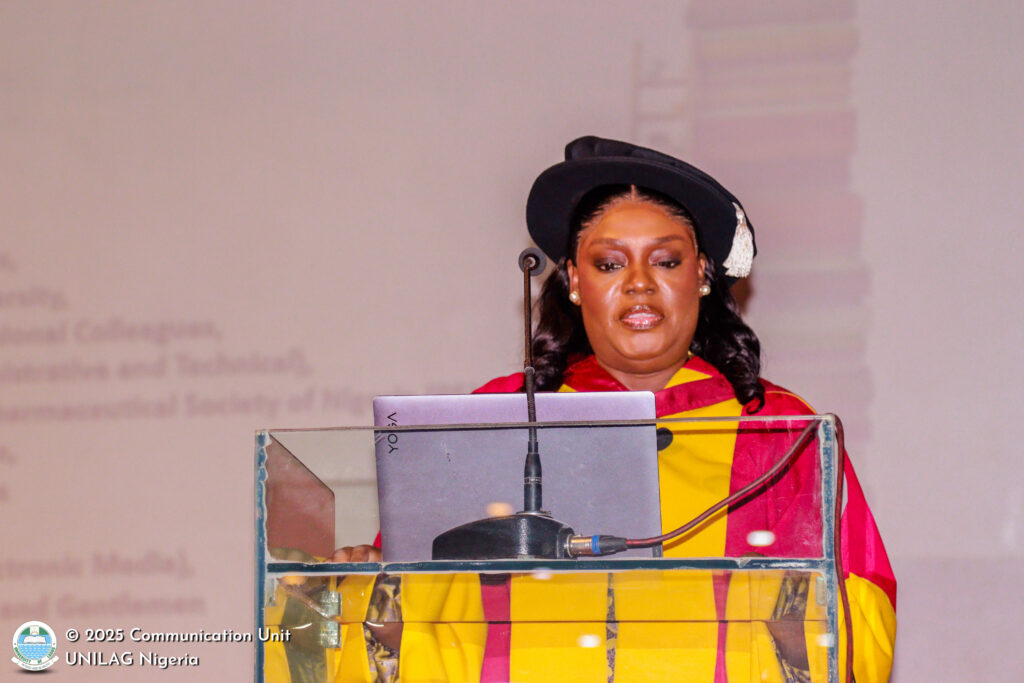
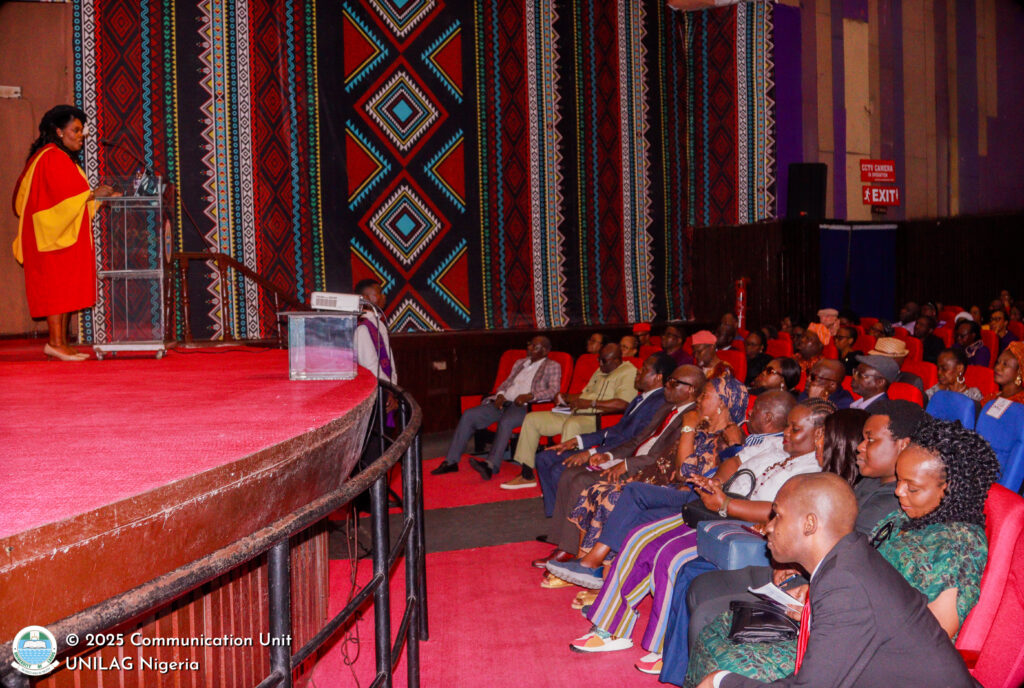
An accomplished scholar in Pharmaceutical Analysis, Medicinal and Natural Products Chemistry, Professor Ayoola took her audience on an enlightening journey through nature’s healing potential and the scientific pursuit of life-saving compounds found in African plants.
From the familiar African walnut, African star apple, and Efo Worowo (Senecio biafrae), to the humble guava, mango, pawpaw, and bitter leaf, she revealed how these plants contain molecules with powerful antioxidant, antibacterial, antidiabetic, and anti-inflammatory properties.
“Nature has never stopped giving,” she said, explaining that advances in chromatography, spectroscopy, and bioinformatics have made it possible to isolate and understand these complex bioactive compounds more efficiently than ever before.
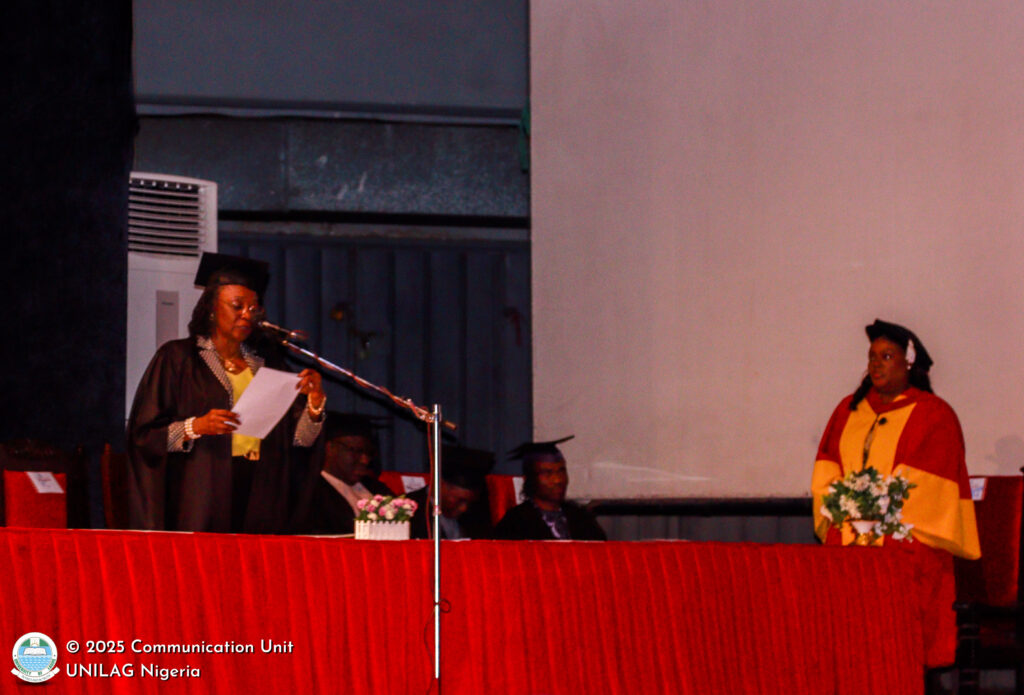
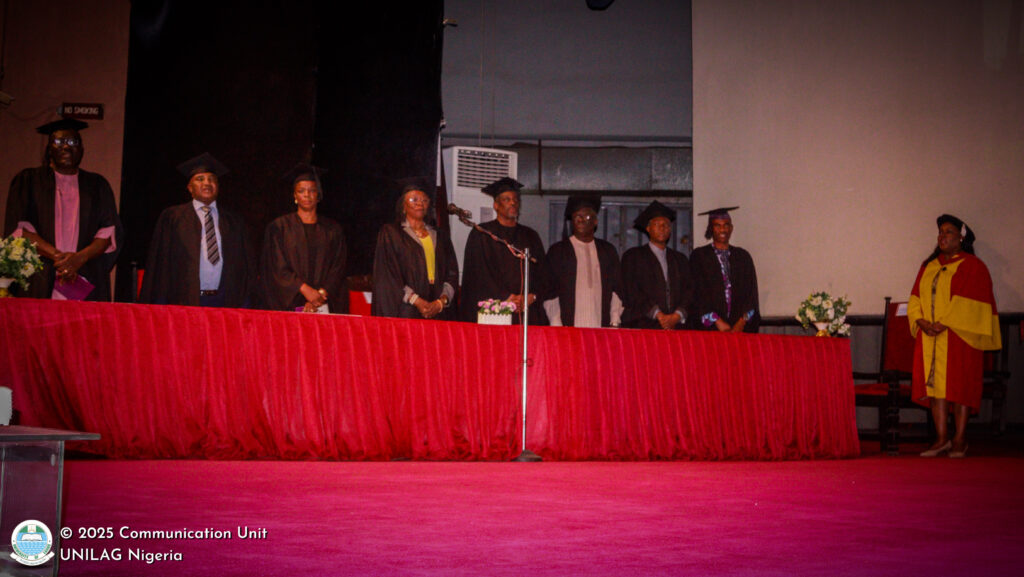
Beyond her work with plants, Professor Ayoola also addressed one of modern medicine’s greatest challenges, which is antimicrobial resistance (AMR). She shared insights from her research on bisbiguanide analogues of chlorhexidine, demonstrating how slight chemical modifications can revive the effectiveness of older antibiotics against multidrug-resistant bacteria known as the ESKAPE pathogens.
By combining ethno-medicinal wisdom with modern medicinal chemistry, nanomedicine, and computational tools, Professor Ayoola envisions a future where Nigeria and Africa play a leading role in global drug discovery.
Drawing inspiration from classic plant-derived medicines like morphine, quinine, paclitaxel, and artemisinin, she emphasized that “molecules that heal” represent not just a scientific frontier, but a societal responsibility to harness nature’s gifts safely and sustainably for the benefit of humanity.
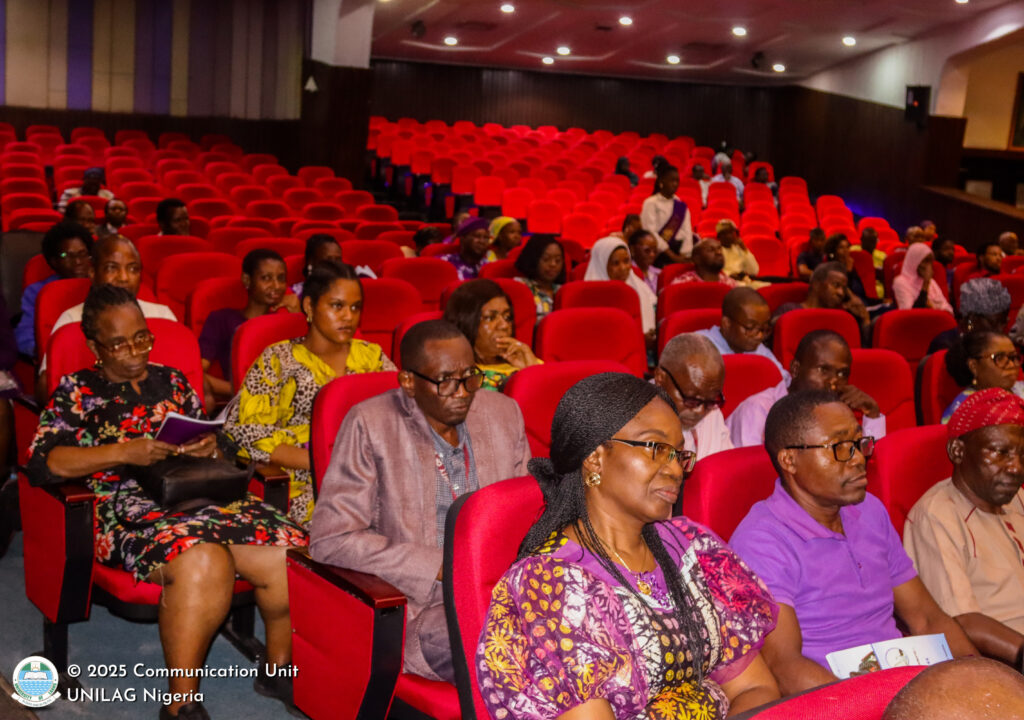
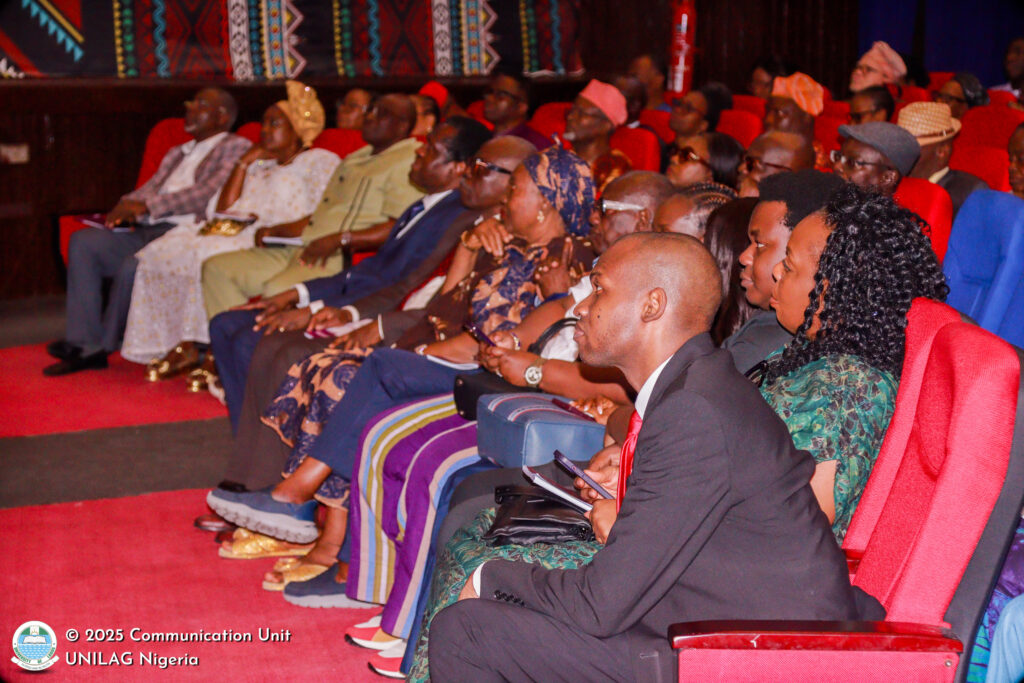
“Nigeria is blessed with many molecules that heal,” she affirmed. “We only need to keep exploring, testing, and transforming them into medicines that improve lives.”
Her lecture received resounding applause from colleagues, students, and guests including the 9th Vice Chancellor of UNILAG, Tolu Olukayode Odugbemi NNOM, OON who lauded Professor Ayoola for blending deep scientific insight with relatable storytelling, a hallmark of scholarship rooted in both curiosity and compassion.

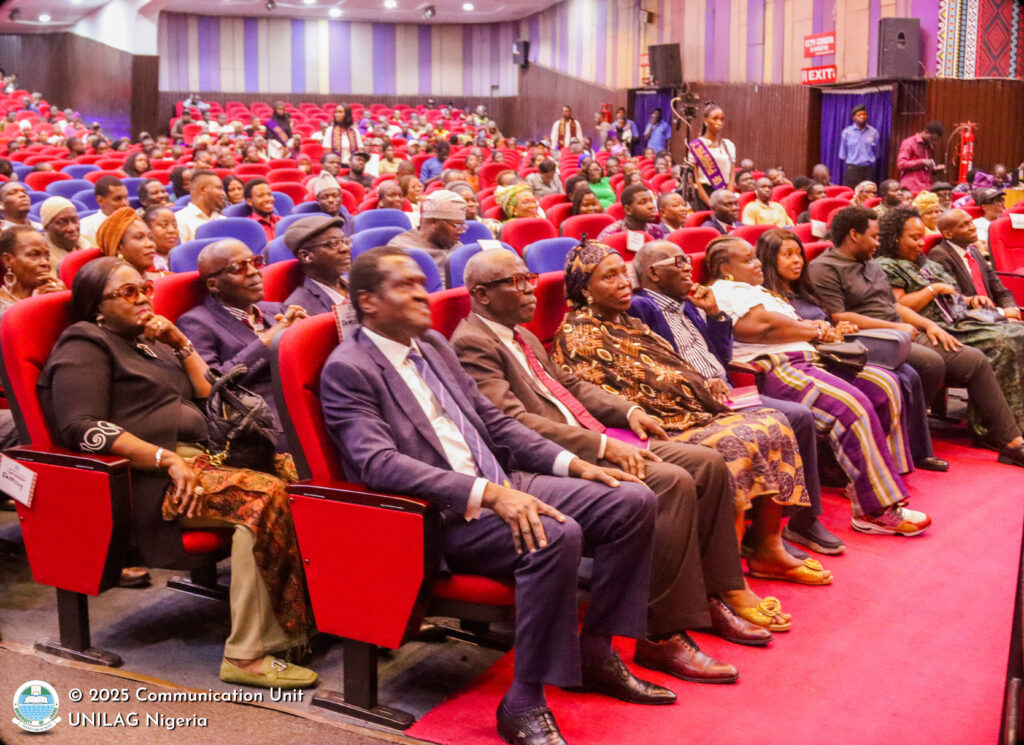
About Professor Gloria Abiodun Ayoola
Born on December 25, 1969 in Ibadan, Oyo State, Professor Gloria Abiodun Ayoola began her quest for western education at Sacred Heart Private School, Ibadan, Oyo State. Thereafter, she proceeded to Federal Government Girls’ College, Oyo, and Modes Study Centre, Oxford, United Kingdom where she obtained her O’level results in 1984 and A ‘level results in 1987.
She is an alumnus of the University College London (UCL) School of Pharmacy, and University of Bath where she obtained her doctorate degree in Medicinal Chemistry in 1998. At Bath, she was able to hone her skills in the synthesis of cyclic-adenosine diphosphate ribose analogues, works that laid the foundation for her lifelong pursuit of therapeutic innovation.
Professor Ayoola joined the services of the Faculty of Pharmacy, UNILAG as Lecturer 1 in 2005 and rose through the ranks to become a Professor in 2018. A dedicated mentor, she has successfully supervised the research projects of over eight (8) doctoral candidates as well as over one hundred (100) master’s and undergraduate students.
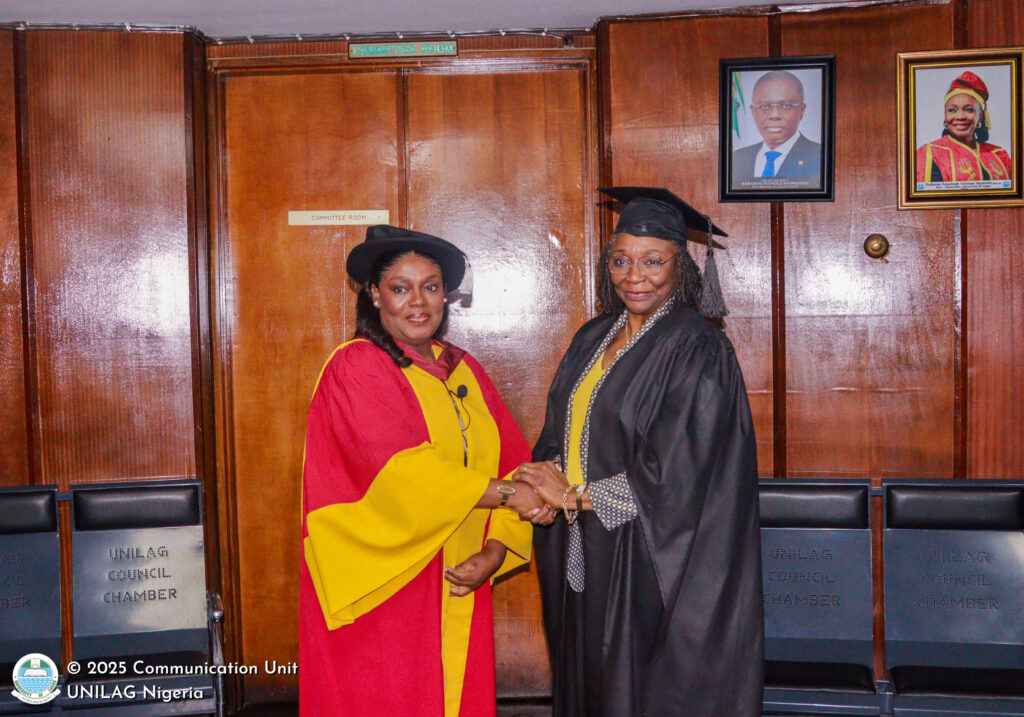
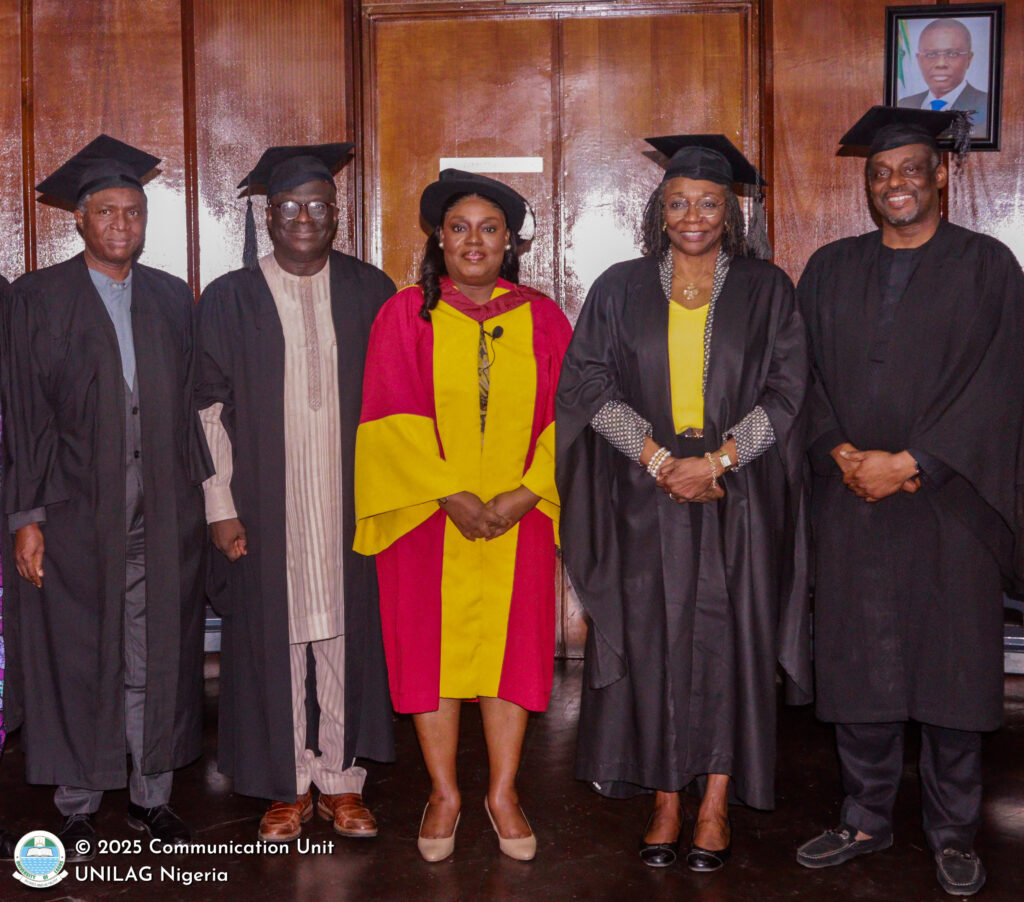
Professor Ayoola, who recently concluded her term as Dean, Faculty of Pharmacy, has served four terms as Acting Head of the Department of Pharmaceutical Chemistry and contributed her expertise on several boards and committees including the Postgraduate School Board, Student Disciplinary Board, Faculty Curriculum Review Committee, and Board of Trustees of the Ladipo Mobolaji Abisogun-Afodu Annual Lecture in Pharmacy.
Outside the university, Professor Ayoola’s impact has been felt in in the following capacities: Deputy Editor, Nigerian Journal of Health and Biomedical Sciences; Associate Editor, International Journal of Health Research; Editorial Board Member of Botany Research International, Journal of Phytology and Board Member, Meadow Hall Foundation Advisory Board. She is a member of reputable international organisations such as Pharmaceutical Society of Nigeria; General Pharmaceutical Council, United Kingdom; and Royal Pharmaceutical Society of Great Britain.
During her sabbatical year, Prof. Ayoola was a Senior Research Fellow at the School of Cancer and Pharmaceutical Sciences, of the King’s College, London, where she supervised postgraduate and undergraduate projects on the design of efflux-resistant biocides, a new frontier in combating drug resistance.
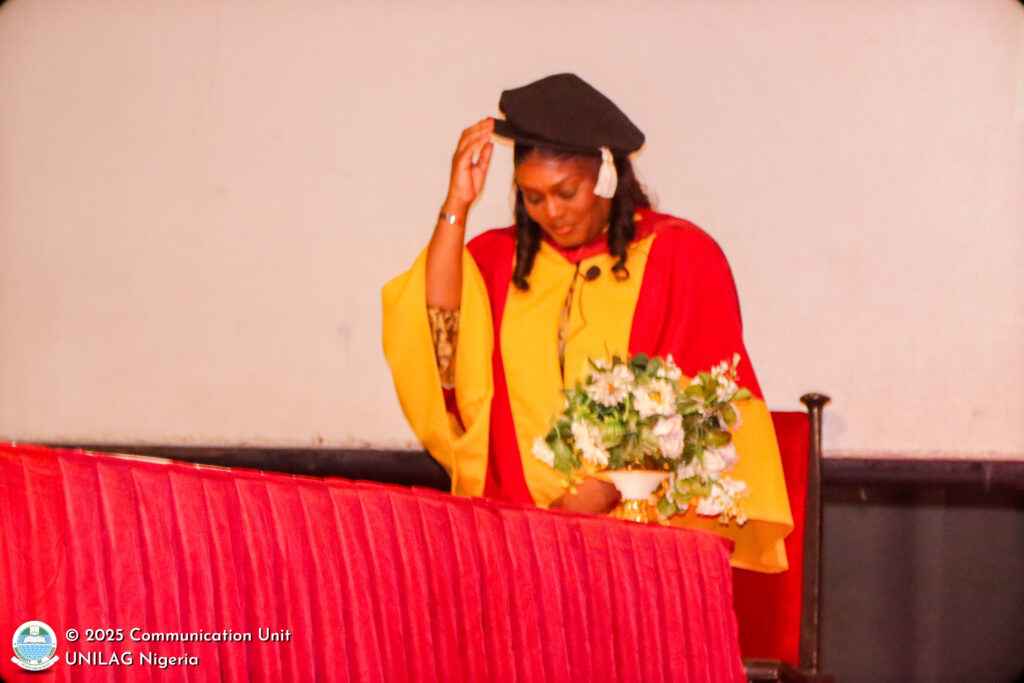
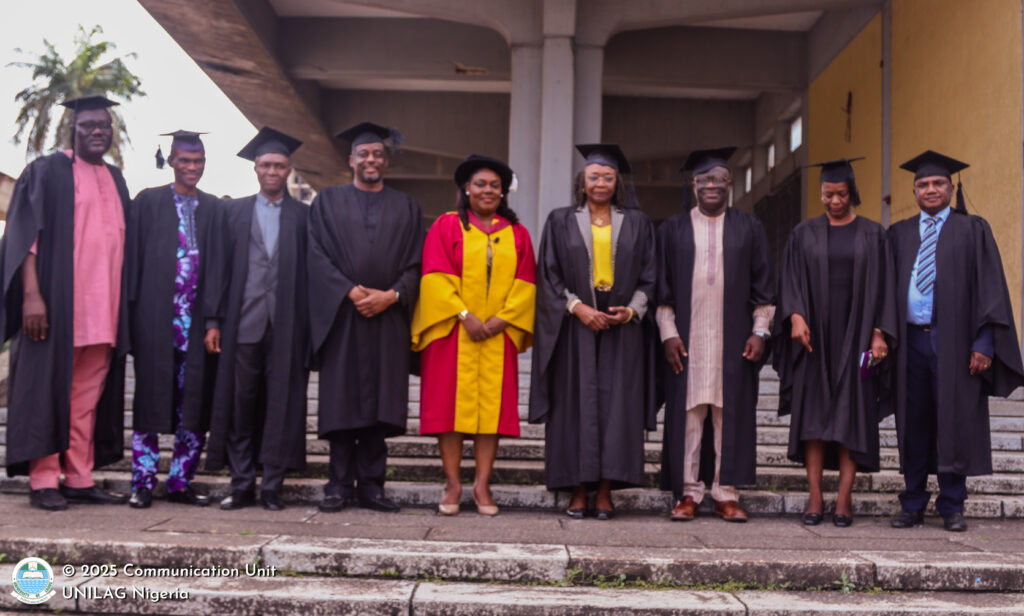
Over the years, Professor Ayoola has dedicated her research to unlocking the healing potentials in plants used in traditional medicines, exploring their antibacterial, anticancer, anti-inflammatory, and antidiabetic properties. She has published over fifty (50) articles in national and international peer-reviewed journals.
She also identified potent antimicrobial agents from the aromatic oils of Cloves and mandarin orange popularly known as tangerine through advanced Gas Chromatography-Mass Spectrometry analysis, and has contributed significantly to the green synthesis of metal nanoparticles of Hog plums and Black Afara with promising antimicrobial applications.
Her excellence has been recognized through several prestigious awards, including TETFund grants in 2021 and 2023, participation at the Imperial Business School Executive Education Programme in 2022, and selection for the Women for Africa and Cranfield University Leadership Training for Female Professors in 2023.
Professor Gloria Abiodun Ayoola is happily married and her union is blessed with four children.
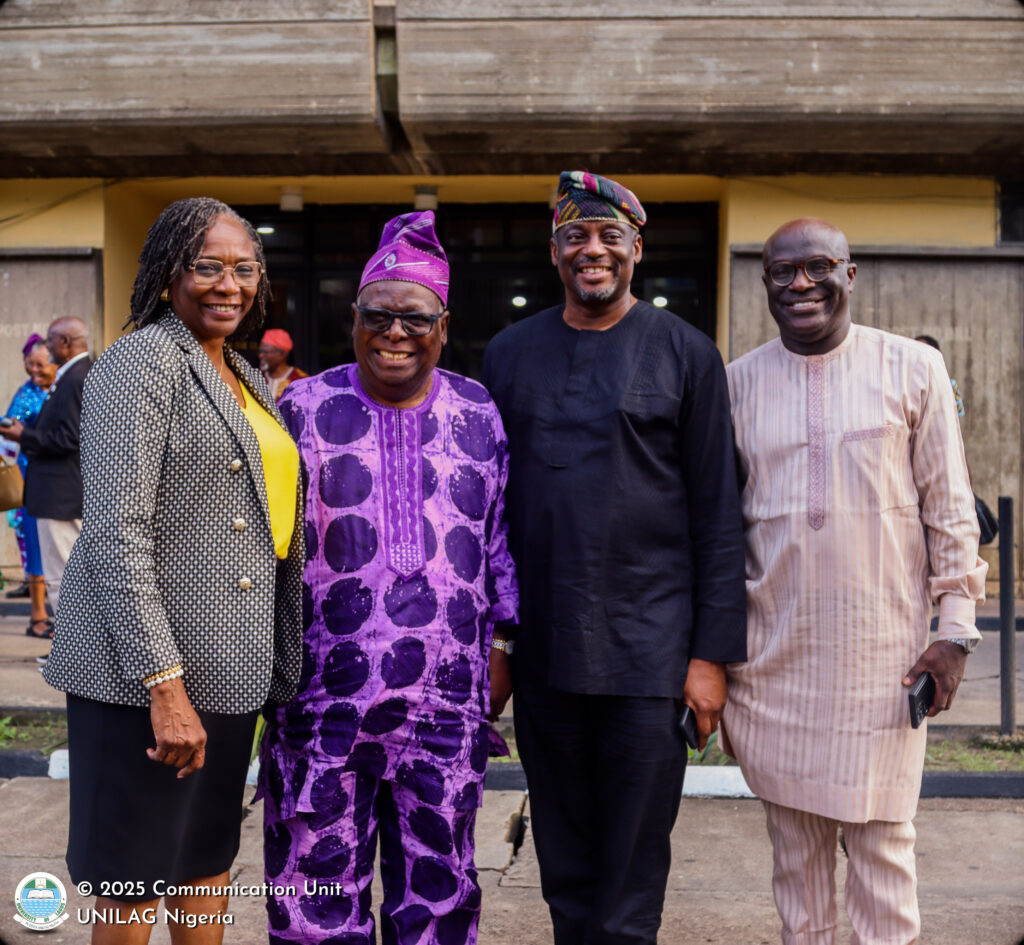
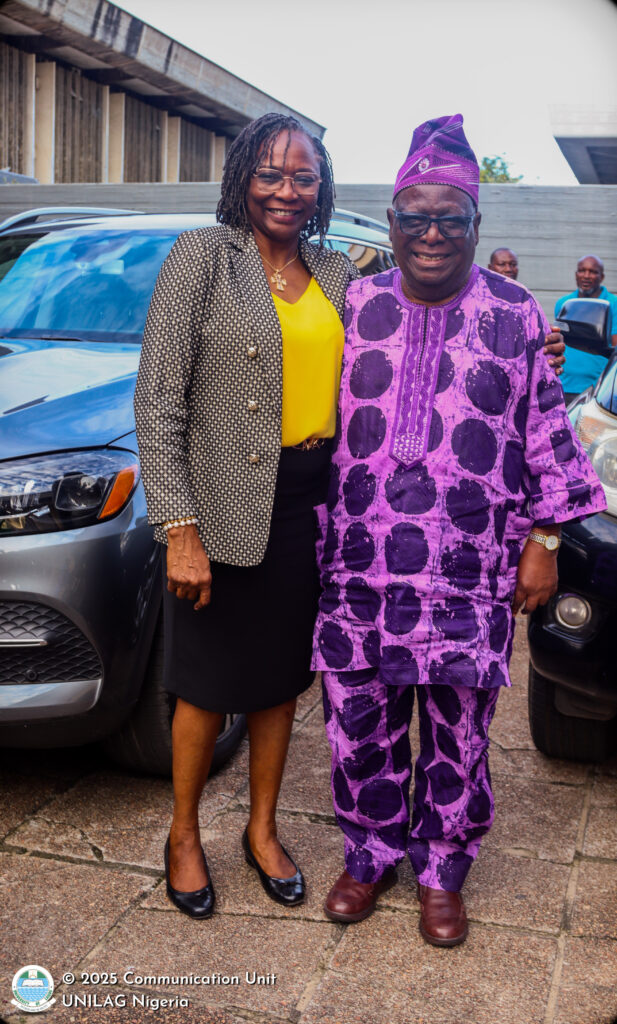
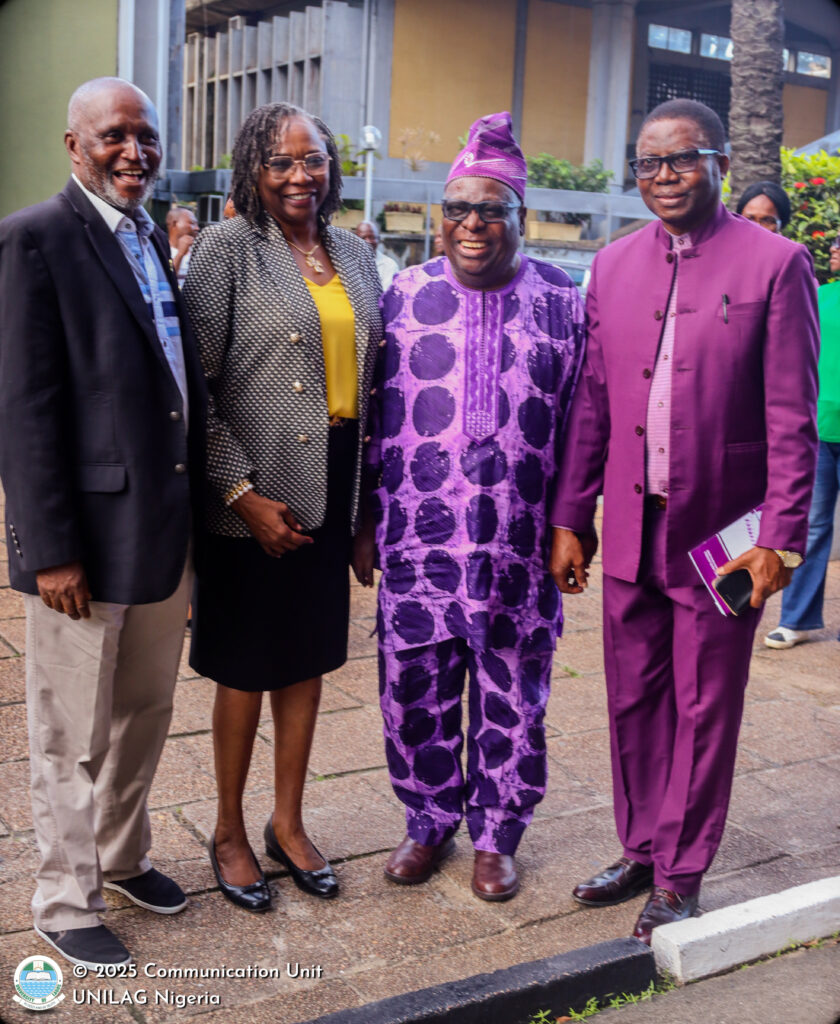
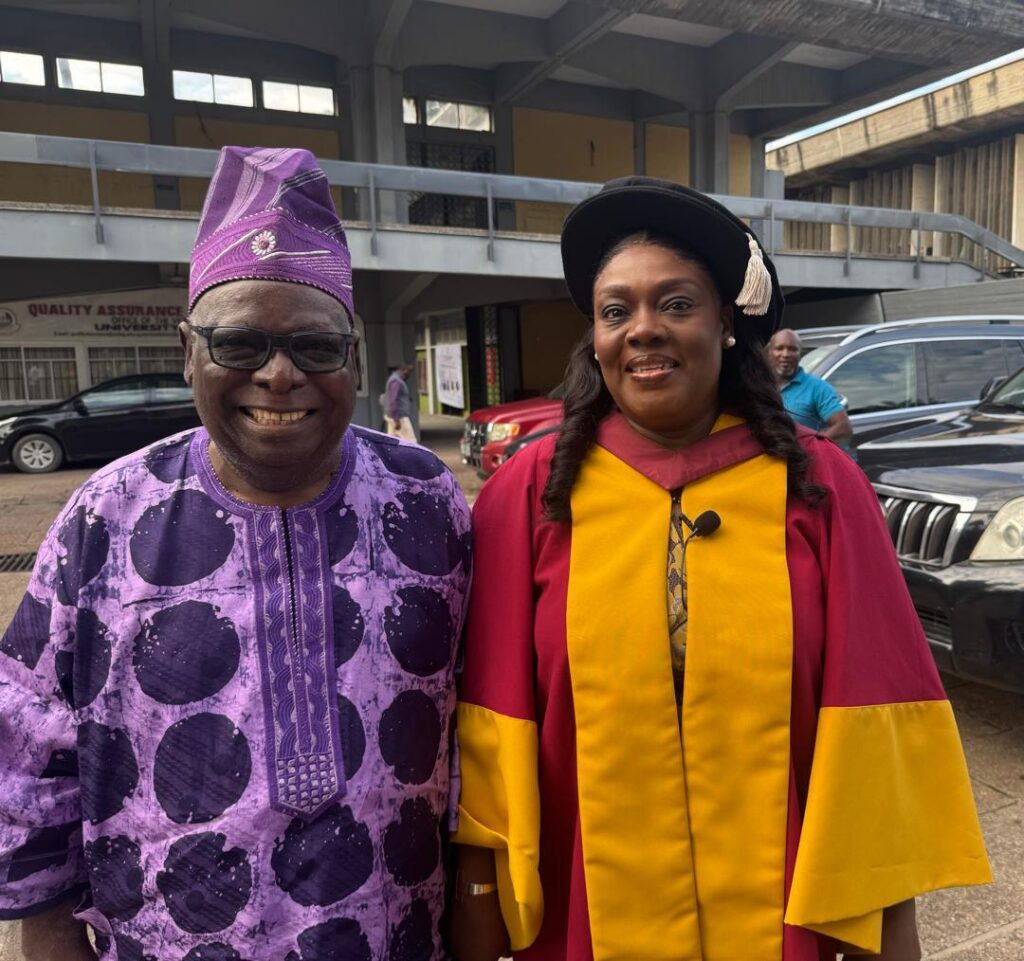
Report: Isaiah Kumuyi
Photograph: Joshua Michael


